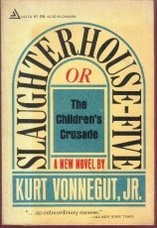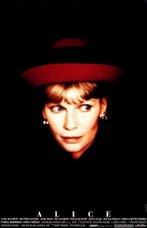, put himself on the map of international cinema with his explosive directorial debut,
. An uncompromising chronicle of a long, violent day in the unpleasant lives of three Parisian teenagers,
is mordant, trenchant, and verdant in every cinematic sense. Shot in luminous monochrome, over 10 years old yet still too cool for school, and at times nearly comic,
is every bit the equal of Tarantino's better known rock 'em, sock 'em debut.

Another august member of Mr. Ebert's
100 Great Films, Wim Wenders' masterpiece
Wings of Desire is a case study in cinematic poetry. From an unforgettable screenplay partially constructed from actual excerpts of German poetry to the compositional prose of legendary cinematographer Henri Alekan, Jurgen Knieper's Arvo Part-like score, and Bruno Ganz' first career performance (his second, as
Downfall's Hitler, is thespian poetry defined),
Wings of Desire is simply one of the most beautiful films ever made.

The next time Clint Eastwood's Best Picture-winning
Million Dollar Baby is on cable, switch on your home theater sound system, turn off the TV, and just savor every line of almost literal poetry from Paul Haggis' heartbreaking screenplay. The trio of career performances by Eastwood plus Oscar winners Hilary Swank and Morgan Freeman will be heard in each of their lines, through their pitch-perfect voices and dialogue of a calibre almost unknown in today's studio product. This is by far the most difficult film on our list to watch, but it also approximates the idea of poetry in motion (pictures) like few others.

Even in the pantheon, the name Fellini looms large, and speaks for itself, a timeless synonym (and occasional adjective) for poetry whose life's work is a template for aspiring artists the world over. But, if we had to choose a single film of his to exemplify his poetic genius, it would be his dreamy, semi-autobiographical
8&1/2, one of the most relentlessly individual yet amazingly universal glimpses at what it's
really like to becreative in a society that is emphatically not...not to mention the artist's recurrent despair of being unable to answer a single question ceaselessly posed by their heart and soul. Marcello and Claudia are radiance defined, too.

While Francis Ford Coppola may be the only American master filmmaker to produce four consecutive undisputed masterpieces (
The Godfather, The Conversation, The Godfather Part II, and
Apocalypse Now) his greatest legacy may yet prove to be his children. Daughter Sofia showed great promise with
The Virgin Suicides, but hit a walk-off grand slam with her Opus Two,
Lost in  Translation
Translation, a shrewd, laconic take on being a lonely young American in that most foreign yet funkadelic place, Japan. Bill Murray's performance as an equally lonely middle-aged actor deserved the Oscar someone else got. (Take heart, Bill. No one remembers whoever got the Oscar that had Anthony Quinn's immortal Zorba written all over it, either.) Then there is the matter of Francis Ford's son. Released almost invisibly by United Artists (something UA has known a thing or two about for rather some time) is Roman Coppola's
CQ, a knowing, loving, and warmly poetic whirlygig of a look at filmmaking itself that will charm anyone with even a fleeting idea of just how crazy making a film can be - and make you. Roman can direct a movie for us any day.

Julian Schnabel's
Before Night Falls is a transcendant, almost dreamlike fairy tale about gay Cuban poet Reinaldo Arenas, whose journey from rural adolescence through the full arc of the Castro revolution to his escape to America and descent into obscurity and poverty is fiercely captured by both Oscar-nominated Javier Bardem as Arenas and the sheer poetic scale of Schnabel's direction. You'll also be taken aback by Johnny Depp's fearless double cameo, which his legion of Pirates fans might find rather, um, unexpected. What is particularly remarkable about this instant classic is the extent to which Arenas' actual poetry (unforgettably voiced-over by Bardem) infuses and develops the pulsating visual drama constructed from it.
Before Night Falls is the most perfectly realized film about a poet and the power of his poetry we've yet seen.

Krysztof Kieslowski's
The Decalogue is an artistic milestone of the 20th Century, period. Made for Soviet-era Polish television,
The Decalogue is a ten part story cycle that uses one of the Ten Commandments as the moral, philosophical, and dramatic basis of each segment. The human depth - and intellectual challenge - of these ten poetic fables is simply breathtaking. If it weren't for the L.A. Times' film critic Kenneth Turan, we might never have heard of this, Kieslowski's still little-known masterwork. Without a shred of overstatement, Turan calls
The Decalogue "one of the indisputably great accomplishments of modern filmmaking" and "a privilege" to see. We believe you will surely agree when you make the effort to see - no, experience -
The Decalogue. It is quite simply Art of the highest order.






























